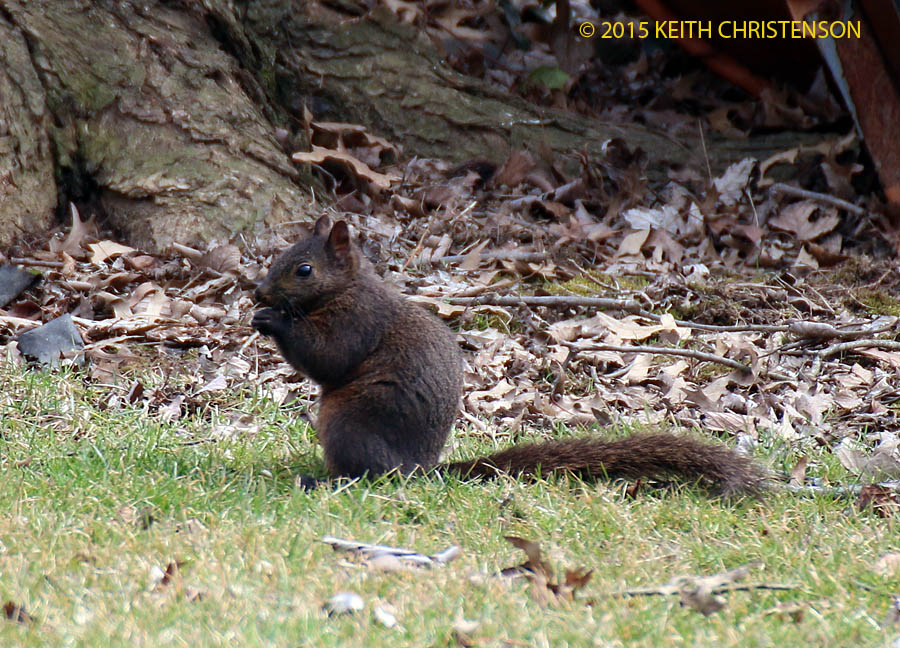Since then, I have been looking for a black morph to add to the topic. Gray squirrels have a recessive gene that can sometimes create a black color. This occurs now and again, here and there, and I have seen one on occasion in various US states. But there is a different story behind the black squirrels in the Washington, DC metropolitan area, where they are far more common. And as John Kelly of the Washington Post claims, we can blame Canada.
Mr. Kelly, for the past few years has had a "Squirrel Week" on his daily column, and he explains why we have so many here. Essentially eight black squirrels were imported from Rondeau Provincial Park, in Ontario, Canada by the Smithsonian back in 1902. They were left to their own accord and over the 100 years since, that recessive gene has become far more common here. You can read the story at:
http://www.washingtonpost.com/local/squirrel-week-where-did-dcs-black-squirrels-come-from-blame-canada/2011/03/30/AFgnPaHC_story.html
So yes, I expected to find one fairly quickly, and I did, in Falls Church, VA. But I have photographed these things before, and it is really hard to get a decent photo. They tend to be very black and without really tweaking the camera settings (which overexpose everything else in the pic) they just look like squirrel silhouettes.
However, they can have a bit more gray in them, or a bit more rusty color, which can make for a better photo. The one I found was the rusty variety, and although it was inside a fenced in private property, I was able to get a reasonable photo of it.
As noted in the previous post, white squirrels can either be albino (identifiable by the pink/red eyes) or a white morph (called leucism where there is a partial loss of pigment). Black squirrels are when a recessive gene expresses more pigment (called melanistic), although the use of the term "mutant gene" is apparently widely accepted. Two copies of the mutant gene and you get a jet black squirrel, and with just one copy you get the squirrel pictured above.

 RSS Feed
RSS Feed